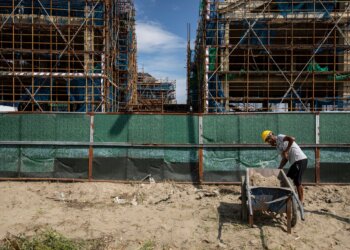Brazilian prosecutors have filed a lawsuit against Chinese electric vehicle giant BYD and two of its contractors, accusing them of enabling human trafficking and subjecting workers to conditions akin to modern slavery at a construction site in the northeastern city of Camaçari.
According to the Labor Prosecutor’s Office in Bahia, 220 Chinese workers were rescued from the site, which was meant to house BYD’s first electric vehicle factory outside Asia. The project has been on hold since late last year following reports of unsanitary living quarters, overcrowding, and coercive employment practices.
Authorities allege that workers were housed in cramped rooms with inadequate hygiene, shared one toilet among 31 people, and often slept on bare bed frames. Many had their passports confiscated, were locked into contracts with illegal clauses, and faced 70% wage withholding. The cost of terminating those contracts was prohibitively high.
The prosecutors are seeking 257 million reais ($45.5 million) in damages from BYD and its subcontractors. Under Brazilian law, “slave-like” conditions include debt bondage and practices that compromise human dignity, even if workers are not physically restrained.
BYD, which recently overtook Tesla in European EV sales, has said it maintains a zero-tolerance policy on labor violations. The company has not publicly commented on the lawsuit, though it previously claimed it cooperated with authorities.
The case poses a reputational threat to BYD’s global expansion, especially as it eyes Brazil—its largest overseas market—as a cornerstone for growth. The plant was originally expected to be operational by March 2025.










